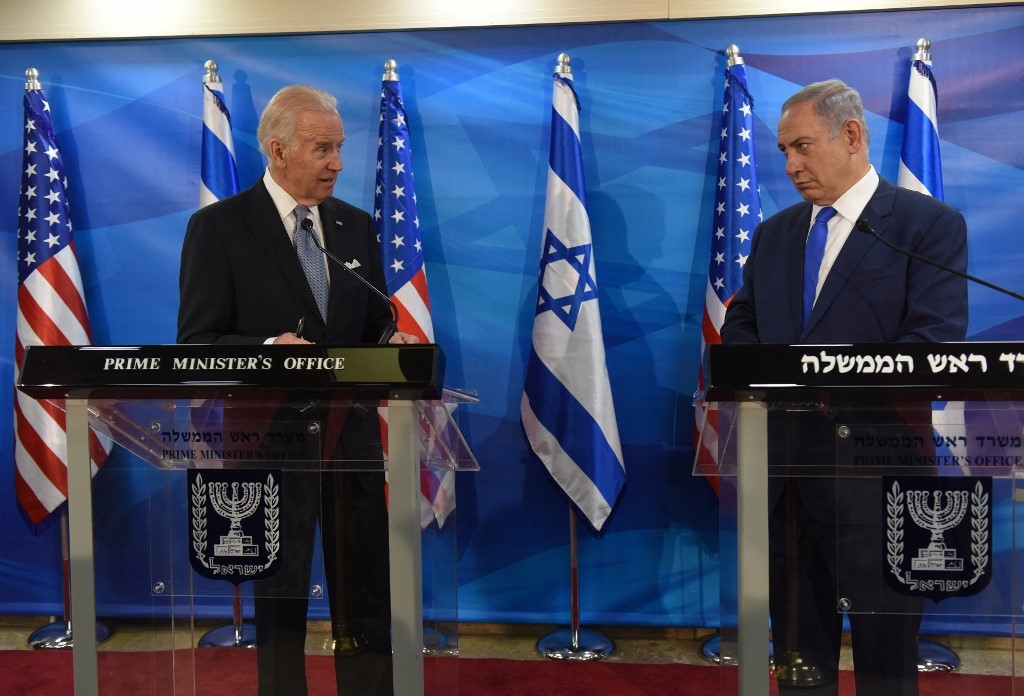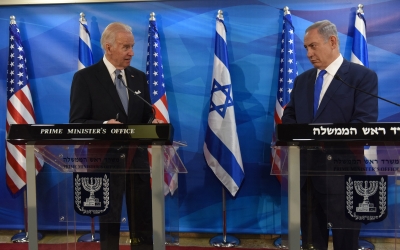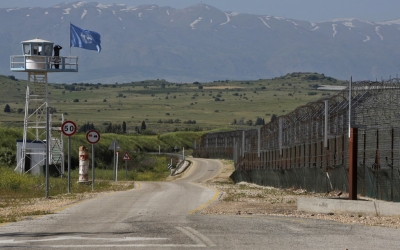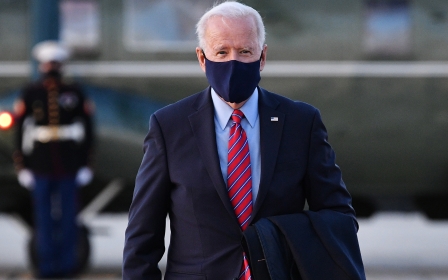Biden's refusal to call Israeli PM Netanyahu sparks questions over leaders' relationship

US President Joe Biden's seeming reluctance to call Israeli Prime Minister Benjamin Netanyahu more than three weeks after taking office is raising questions about the possible message the US leader could be trying to send.
Having made at least 11 calls to foreign leaders, including a two-hour conversation with the president of China, Biden has taken heat for failing to reach out to Netanyahu as his first month in office comes close to an end.
'I think that the new administration wanted to send a message. That message was sent... it's time to move on'
- Danny Danon, former Israeli ambassador to UN
Former presidents Donald Trump and Barack Obama both reached out to Israel's prime minister within the first two days of being sworn in.
During a news conference on Thursday, White House Press Secretary Jen Psaki addressed the rumours surrounding the no-call, telling reporters that President Biden "looks forward" to speaking with Prime Minister Netanyahu and highlighted the leaders' "long-standing relationship".
Without providing a specific date or time for when they would speak, or explaining the reason for the delay, Psaki did say "he'll be talking with him soon".
New MEE newsletter: Jerusalem Dispatch
Sign up to get the latest insights and analysis on Israel-Palestine, alongside Turkey Unpacked and other MEE newsletters
'It's time to move on'
Meanwhile, other top US officials, including Secretary of State Antony Blinken, Defense Secretary Lloyd Austin and National Security Advisor Jake Sullivan have all spoken with their Israeli counterparts in recent weeks.
Danny Danon, a former Israeli ambassador to the UN, brought the controversy to the fore on Wednesday when he posted a bizarre tweet that highlighted Biden's outreach to other foreign leaders despite his apparent snubbing of the Israeli PM.
Jacob Kornbluh, senior political reporter for Jewish American webzine Forward, on Friday said Danon told him he believed Biden's lack of a phone call was purposeful.
"I think that the new administration wanted to send a message. That message was sent, and now it's time to move on," Danon reportedly said. "It's important that this call happen soon."
Meanwhile, Ben Rhodes, Obama's deputy national security advisor for strategic communications, said Biden's reluctance to contact Netanyahu should not come as a shock, given the prime minister's treatment of Biden's former administration.
"What a surprise that after Bibi spent years relentlessly undermining the Obama-Biden Administration he's not at the top of the call list," Rhodes said, using a nickname for the Israeli PM.
In 2015, Netanyahu tested the US-Israel relationship when he spoke to a joint session of Congress without notifying the White House and urged lawmakers to undermine Obama's efforts to strike a nuclear deal with Iran.
At the time, his address stirred up controversy and threatened to turn support for Israel into a partisan issue, as Democrats were very much against the move, which was seen as a stunt that challenged Obama's presidential authority over foreign policy.
Despite Israeli objections, Biden has vowed to attempt to re-enter the nuclear deal with Iran after then-president Trump, who cultivated an exceptionally strong relationship with Netanyahu, pulled out of the deal in 2018.
Biden moves in favour of Israel
But Biden's reluctance to call the Israeli leader is hardly proof of any kind of rejection of Israel's status as one of Washington's most valued allies.
Since taking office, President Biden, a strong supporter of Israel throughout his long political career, has made clear that the US has no intention of reversing controversial Trump-era policy changes, including US recognition of Jerusalem as the capital of Israel.
Biden has also promised to keep the US embassy to Israel in Jerusalem, turning down progressive calls to move the diplomatic post back to Tel Aviv, where world bodies have historically placed embassies due to the contested nature of Jerusalem's status.
The US president has also pledged never to impose conditions on US military assistance, despite calls from progressive Democrats to do so.
Biden's top cabinet picks have also publicly voiced ardent support for the US ally. Earlier this week, Secretary Blinken, defending the administration's relationship with Israel on CNN, pointed out that Biden had spoken to Netanyahu during the transition before he took office.
Still, writing for Israeli newspaper Haaretz, security analyst Yossi Melman said Biden's "thundering silence" was clearly an attempt to send a message to Netanyahu.
"Biden and his aides aim to tell Netanyahu: 'You're nothing special, you're not an only child. The personal connection and chemistry you had with Donald Trump not only fail to advance your standing in Washington, they're an obstacle,'" Melman wrote.
House Representative Maria Elvira Salazar, a member of the chamber's foreign affairs committee, specifically slammed Biden for reaching out to the Chinese leadership before Israel.
"It is embarrassing. It is offensive. And should be corrected immediately," she said.
Middle East Eye delivers independent and unrivalled coverage and analysis of the Middle East, North Africa and beyond. To learn more about republishing this content and the associated fees, please fill out this form. More about MEE can be found here.






